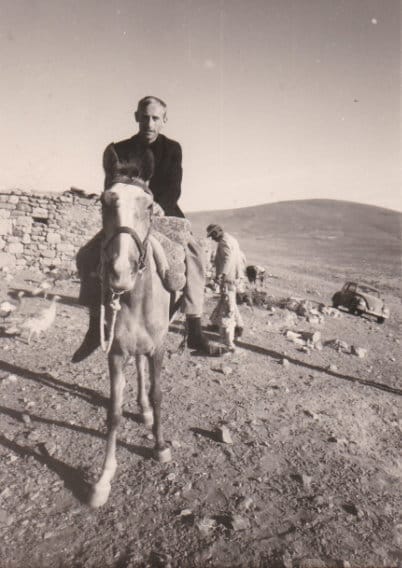
TUXAMOONs generous support makes it possible for you to read this article for free . All issues are out of stock.
Jazz is the ideal form of democracy.
— Stefan Gerdes
Interview: Eckhard Fürlus
You signed one of your last e-mails with mahmoud susu. That surprised me. What's it all about?
i have traveled to many arabic countries & i noticed that when i mentioned my name hartmut, people looked at me in shock. as an arabist, i didn't realize for a long time that the word hartmut in arabic means: you will die! mut - mat - mout - mat is the arabic word root for die. the german sounding: “schach matt” is arabic & means: “the shah (king) is dead”. when i realized this, i no longer called myself hartmut in arabic countries, but mahmoud. my second name ‘susu’ goes back to the lessons on the african xylophone, called ‘balafon’, which i enjoyed in west africa, in gambia with a famous master. when a student has passed the exam, he usually takes on the name of his teacher. mine was from the susu people.
You had classical training as a pianist with one of the Kontarsky brothers (Aloys and Alfons; the third is the conductor Bernhard Kontarsky). How did you come to jazz, or to put it another way: what was it about jazz that fascinated you so much that you said goodbye to Béla Bartók and classical music and turned to jazz as the more interesting form of expression for you? Would a combination of both musical styles have been possible?
no, i don't think so. around the turn of the century, modern european classical music led to what we call the classical avant-garde. as interesting as some composers of this genre are, their forms of presentation & reception adopt the traditional rituals, such as sitting still, coughing during pauses, clapping at the end, etc., without looking at them. this is incompatible with the history of the origins of jazz. there is dancing, not just coughing, & you clap when you are enthusiastic at a climax. the fundamental enthusiasm & physical presence distinguishes both the musician and the listener of jazz from european music culture. there are, of course, attempts at fusion. stockhausen's “aus den sieben tagen” has traits of free jazz & the composer also used jazz musicians for the recording of this composition. on the other hand, there is a whole series of jazz musicians who, possibly also out of pecuniary interests, approach european classical rituals (anthony braxton, roscoe mitchell). in the 40s/50s there was a movement that called itself “third stream” & that tried to combine both areas (gunther schuller). but that died out after a short time.
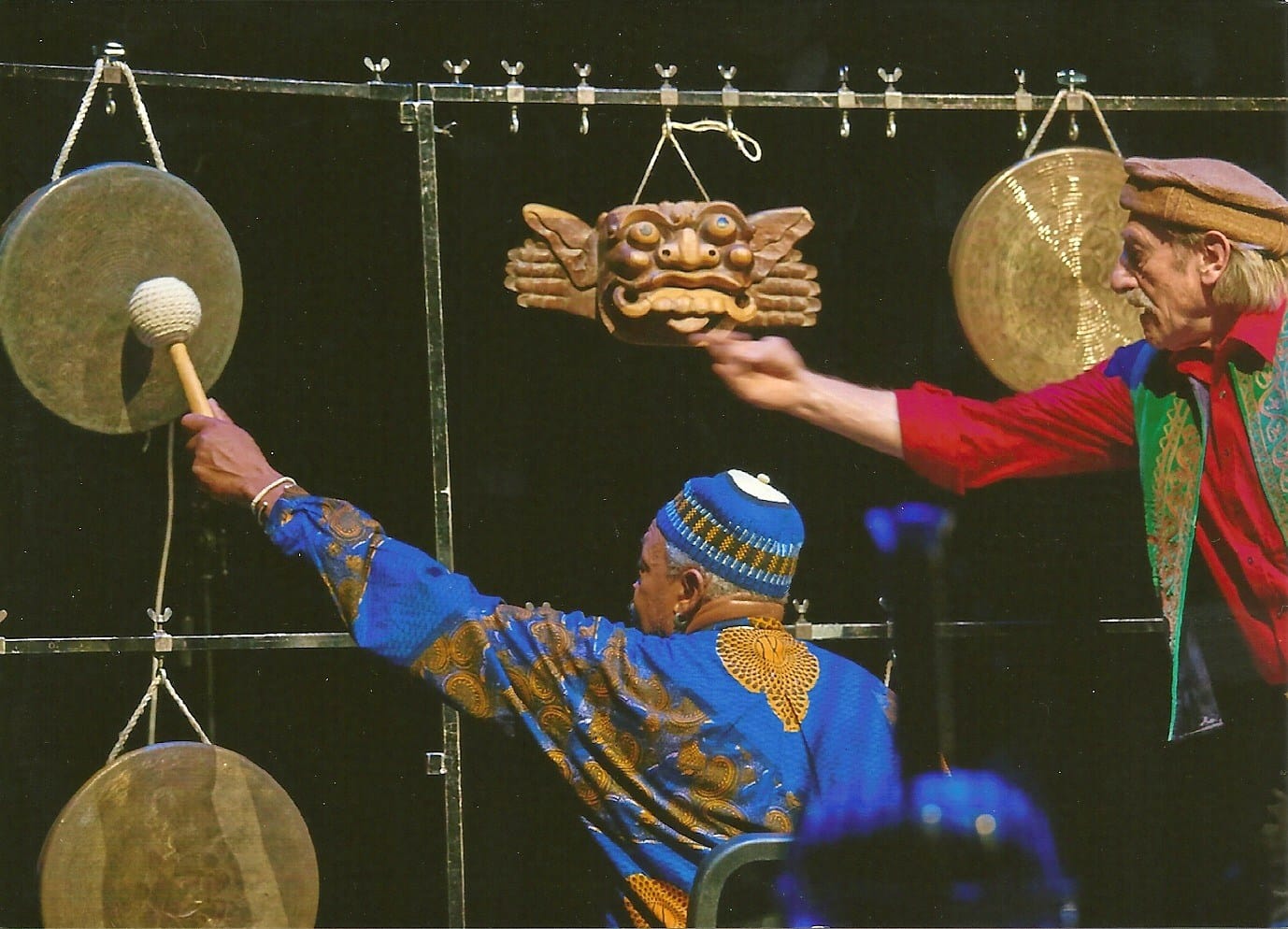
Your collaboration with the Art Ensemble of Chicago and Famoudou Don Moyé runs like a red thread through your musical activities. Shortly after your interview with Deutschlandfunk in 2012, John Tchicai, also one of your long-time companions, died. How did the collaboration come about and what was and is the chemistry between you?
i have been playing with famoudou don moye for 37 years. we met in athens in 1983, where i was working for the goethe institute. somehow we soon realized that we have something in common that is hard to put into words. our friendship has never become superficial, but rather the opposite. we still talk on the phone almost every day, & we have developed a common vocal language in which we don't have to reckon with the risk of linguistic misunderstandings, but can express almost everything with it. my collaboration with the art ensemble of chicago naturally came about through moye. - i first met tchicai in person 50 years ago at a jazz festival in willisau, switzerland. my first long-playing record - “heliopolis” - had just come out. i gave him a copy, & that was obviously reason enough for him to approach me a little later & invite me to work with him. when i was transferred to afghanistan in 1972, tchicai soon came to visit me, & he lived in our house for several weeks. during this time we had several concerts in kabul, tehran & karatchi. my friendly relationship with tchicai was less intense. we played wonderfully together, the west african trip in a trio with moye was an incomparable adventure, but there were a few rough edges with tchicai on a human level!
Afghanistan has been at war for many decades. You lived and worked in Kabul / Afghanistan when the country was still a kingdom. How did you experience Afghanistan?
i entered the kingdom of afghanistan in 1972 & experienced this country as an earthly paradise. i often met king zahir shah when he drove through the country in his white toyota without body guards, for example to visit construction sites. the people were not yet very spoiled by the west. there was a high moral standard, respect was not just an empty phrase, & the hospitality made every european blush. during my cultural work, i didn't have to sign a single written contract with afghan institutions: a handshake was enough & the agreements were meticulously adhered to. unfortunately, this has all come to an end with the intervention of the west. afghanistan is now a political, economic and human shambles, unfortunately also due to german involvement. the opinion of german politicians that our freedom must be defended in the hindu kush could not be surpassed in its foolishness. germany has been the best friend of the afghans since the time of emperor wilhelm. the “amani upper secondary school” founded by germany has existed for over 100 years. we germans were friends in the country, today we are occupiers in uniform!
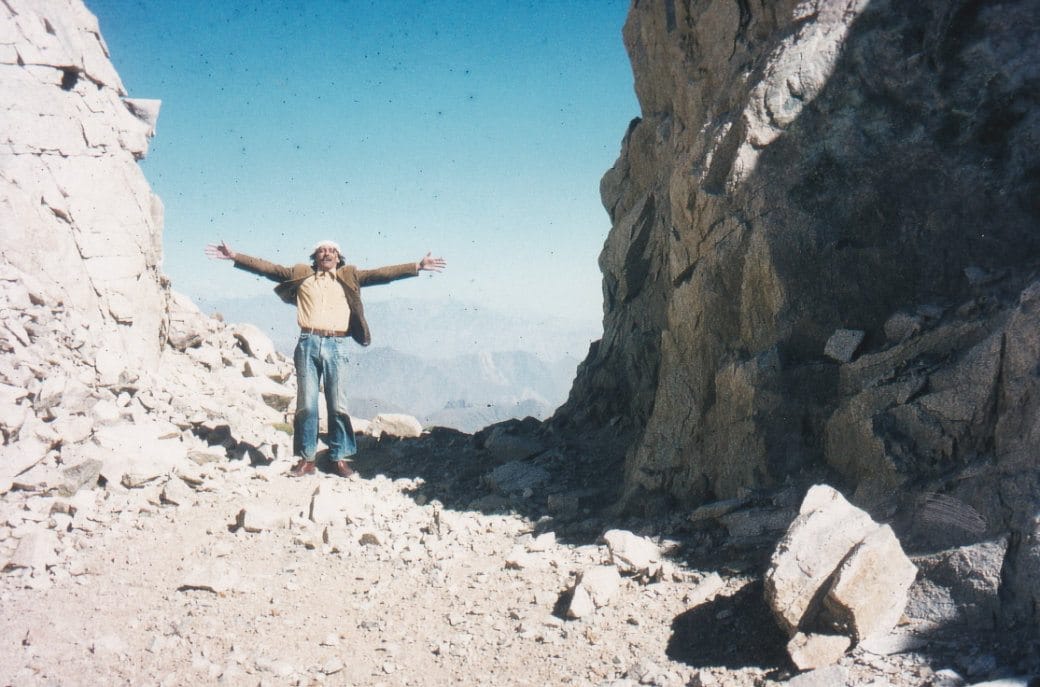
How was it possible to establish a free jazz scene in Kabul? What could you fall back on? Were there already existing structures that were helpful?
i had already initiated a free jazz scene in cairo 10 years earlier. an egyptian, a czech & i founded the first egyptian big band, the “cairo jazz band”, from which the “cairo free jazz ensemble”, which i led, emerged. there are now several long-playing records of our concerts. - in kabul i then met two local rock musicians with whom i played a lot together. then john tchicai joined me & a german journalist & saxophone player who left the stammheim trials of the baader meinhof group out of frustration & fled to afghanistan by car. there are also concert recordings of these constellations on several long-playing records. in terms of jazz, when i arrived there, there were no structures on which i could have built. in addition to the activities mentioned above, i founded a jazz club at the goethe institute, & i was even able to establish a weekly one-hour jazz program on radio afghanistan. - afghanistan was unforgivably bombed back into a black past after my time. i'd better stop here, i'm in tears ...
I bought my first Hartmut Geerken book many years ago; at that time - I must confess to my shame - I knew nothing about you and your work. It was published by Fischer Verlag in 1979; on the cover it says: "Märchen des Expressionismus. (Fairy tales of Expressionism) Edited by Hartmut Geerken". How did this book come about?
as a student in tübingen, i attended ernst bloch's lectures and seminars for years. the term ‘fairy tale’ ran like a red thread through many of his lectures. i no longer remember what really prompted me to take a closer look at fairy tales. in any case, i ended up in the seminars of the legendary prof. hermann bausinger at the “institute for empirical cultural studies”, housed in the tower of the old tübingen castle. one seminar was about the social aspects of the romantic fairy tale. infected by bloch, who philosophically valorized everything fairytale-like, & the literature of expressionism became my favourite subject, i did my seminar paper on the expressionist art fairytale. the research on this topic was so productive & the seminar paper was so positively evaluated by bausinger that i set about expanding my seminar paper, possibly also with bausinger's encouragement, from which my “golden bomb” finally emerged, published as a hardcover by agora-verlag, later as a paperback by fischer. the ‘fairy tale of expressionism’ has been used as a terminus technicus in the literary history of modernism ever since.
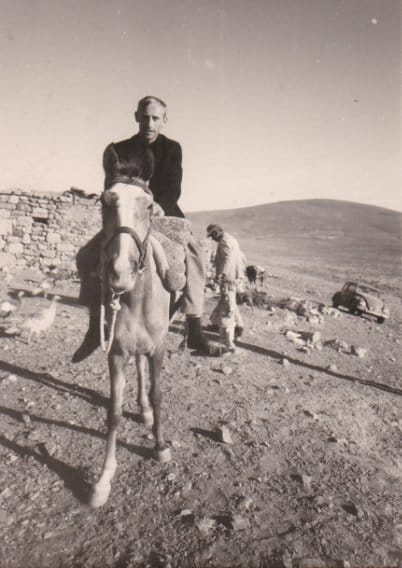
It's not your first publication. You wrote your first book in 1967 together with Sigrid Hauff, and it is a guide to the sights of Göreme commissioned by a Turkish automobile club. A Latin proverb says that books have their destinies. What is the fate and genesis of this book?
in 1963/64 my wife & i had a scholarship from the daad & the turkish government to continue our studies in oriental studies at istanbul university. one day we wanted to go to göreme in central anatolia for field research. we packed our belongings into our vw beetle & swept our apartment as good swabians. when we wanted to leave, it was five o'clock in the morning, we found our car empty! everything we had was stolen, including all our papers from our studies & our two almost finished dissertations, mostly on index cards. with what we had on our bodies, after the initial shock, we drove to göreme, rented a small house in the middle of the village of ortahisar (for 20 marks a month rent!) & tried to come to terms with what had happened. we didn't want to go to germany. we didn't want to be pitied. we were treated as guests by the villagers & the mayor from the very first moment & it was such that any german would have been ashamed. soon we realized that we were in the nucleus of a unique cultural & civilization landscape. the 300 or so byzantine cave churches had hardly been scientifically researched at the time. a work by the frenchman guillaume de jerphanion & a german illustrated book were the only works on this unique tuff cone landscape with its hidden places of worship. in order to help the inhabitants of our place financially, we decided to write the very first “guide to göreme” to boost tourism, which had not existed until then. unfortunately, this has changed in the following 50 years. today, to my regret, göreme has become a sought-after tourist destination & our göreme guide is still available in german, turkish, english & french.
Of all your books, “Omniverse Sun Ra” is the best known and, it is fair to say, legendary book, of which there was a new edition a few years ago, but which differs from the original book, which is now offered at a very high price - if at all.
the cosmic sun ra & his philosophy have been with me since the late 50s of the last century. i heard a program about sun ra by joachim ernst berendt on southwest radio. this first impression was so strong that it has not faded even after more than 60 years. sun ra's discography is a veritable jungle.
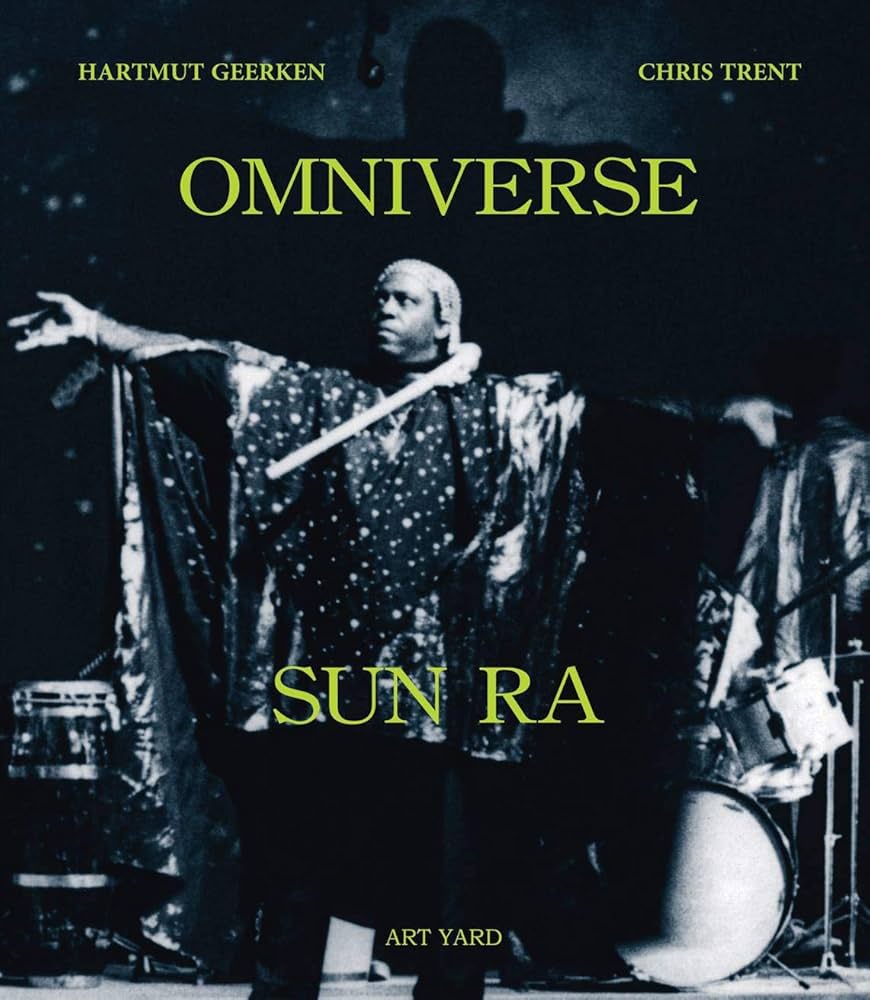
since i have always been interested in chaotic structures, as the son of a postal worker, i tried to bring some order into this hullabaloo. my first sun ra discography was published in 1980 in the greek magazine TZAZ under the title “prolegomena to a never to be completed discography of the acoustic works of herman sonny blount or sonny lee, incarnated sun ra”. after this first publication, my sun ra archive grew more and more, so that i was forced to self-publish my legendary ‘coffee table book’ “waitawhile” in 1994. i had to take out a loan for the elaborate production. the edition of 1000 copies was sold after about a year, together with the amortization of my own costs. a few years ago, a copy was sold to japan for $ 3000. i myself did not earn a penny with this book.
At irregular intervals, extensive books such as “kant” (1998), “ogygia” (2004), ‘phos’ (2005) or “MOOS - 58 überschriften” (2008) are published, in which I found the beautiful quote by Antonin Artaud: “the premeditation of the mad action is often more important than its realization”. Do you wait until the material has accumulated before writing it down, or do you go to the machine from time to time and type in your texts - all in small letters and without periods, commas or semicolons?
i have never thought about what i write, when i write, how i write, why i write, for whom i write. for me, thinking leads to nothing! you can also observe this in the current world situation. for me, the only thing that comes into question is what helmut heissenbüttel called ‘open literature’. i start somewhere & end at a random point. words & sentences flow past me day & night & when something seems worth writing down, i pull out one of my notebooks, which i carry in every pocket & jot down keywords, which i process later on the pc. the openness of established structures leads me to places i would never have found through strategic thinking. this is true for me both in literature and especially in music, in improvisation. the performing arts were probably the first to discover the open. music followed. literature is still lagging behind. open literature only occupies a tiny place in the scene. the reading public demands stories that have already been told thousands of times, stringent plots with tangible characters are a must & the arcs of suspense & plot points are indispensable components of book production. but i feel very comfortable in my self-imposed market inferiority.
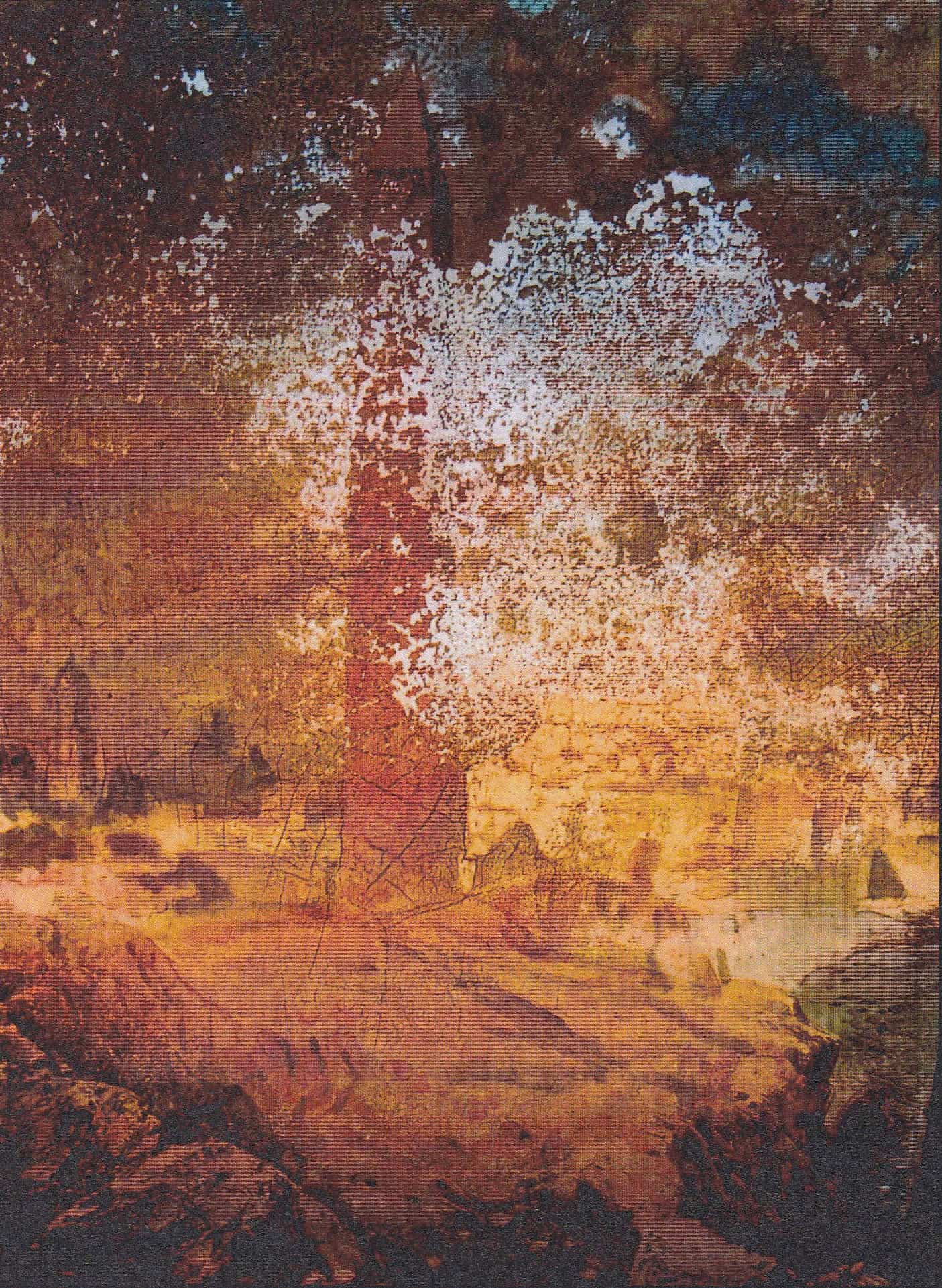
In one of your most beautiful books, “gavdos. a petersburg hanging”, which contains many of your grandfather Johann Hinrich Geerken's glass paintings, you described an event that became significant for your future career. One night, a very heavy oil painting by your grandfather, “Sunrise in the Lüneburg Heath”, came loose from the wall hook due to an earthquake and crashed onto your bed, and at first you didn't know whether it was a dream or reality, but you immediately realized that you would choose the path to creativity.
yes, dream & reality! aren't these the basic conditions of any art? perhaps it was this moment of fright that showed me the way to creativity. it was only much later that i also realized that the phenomenon of fright can be an important initiatory experience in art.
my brother & i found my grandfather's reverse glass paintings about 100 years after they were created in the smokehouse of a reed house in the artist's birthplace. he had earned a little money by using these large, slide-like framed pictures with a laterna magica to give lectures in parish halls & schools about exotic parts of the world that he had never visited himself. perhaps he ended his presentations with the usual saying of the time: “laterna magica close the shutter now, & open it again next weekend. thank you very much for a small donation.”
in my opinion, human language, which has arisen from a brain that has become far too large and lacking in instinct, can be traced back to a ‘mistake’ in evolution.
— Hartmut Geerken
One of your dictums is that language consists only of misunderstandings. I immediately think of Fritz Mauthner and his language-critical statements. Now, works of art have their own truth, which is not identical with scientific accuracy and does not have to be reconciled. Does this play a role for you at all in your writing? How do you deal with your statement when writing your books?
you are right: even or especially as a longtime lecturer in german as a foreign language, my distrust of language is all-encompassing. language is not able to express something where a lie, however small, is implicit. just take a look at the situation of the ‘crown of creation’ on this planet: a single catastrophe! why do you think the situation of ants & elephants is globally different? they very probably have communication systems that do not allow any misunderstandings. in my opinion, human language, which has arisen from a brain that has become far too big without instinct, goes back to a ‘mistake’ in evolution. this is of course denied by the creation-oriented religions, although the basic evils arose & still arise from their ‘babble’. even the trappists were dishonest! for me, language is an unsuitable auxiliary construct. how often is the sentence ‘i love you’ uttered in this world! & what do things look like afterwards? the phrase becomes more of an insult through its common use. i do work with the medium of language, by necessity, but i always override it immediately by pointing out its pitiful state & what it does, permanently & expressis verbis almost on every page in my books. in interpersonal communication, music is much more suitable for me than language. under certain conditions, there can be no misunderstandings. i talk to my friend, the afro-american famoudou don moye, on the phone practically every day. we hardly ever speak generally valid sentences, but rather articulate word-like formations that may be reminiscent of a fantasy language. we understand each other perfectly, misunderstandings are impossible. this is exactly how we act as a duo on stage. we have never tried to use language before a concert & asked ourselves what or how we want to play, but spontaneously go on stage & simply & speechlessly start to play our instruments.
Your first text is a poem entitled “Der Mai” (May), printed in the Neue Württembergische Zeitung. It is now 72 years old. You then continued to write poems, some under the pseudonym Gene Powell. What distinguishes Gene Powell from Hartmut Geerken?
i can no longer associate anything with gene powell. maybe i once used this name in a school newspaper because i didn't want people to identify me with the poem. maybe i was ashamed? what was still possible back then! it's not surprising that i chose an american-sounding name, since we in the west have all been colonized by the usa. & gene powell simply attracts more attention than peter müller. i sometimes use the pseudonym 'mahmoud susu'. my indian friend uschaschi said with a wink that susu would be used in her mother tongue when a baby pees! not bad either!
The list of your publications is very extensive and has long since become unmanageable; even the list of works compiled by Klaus Peter Harming remains incomplete. Texts with titles such as “die weisse leinwand ist ein rotes tuch” or “Vom Mundtotmachen und der Schere im Kopf”, “ominöse vögel”, “aforismen über den polizisten & die polizei”, “destination: non stop. theaterritual für eine person” and “races places faces & asses” arouse curiosity and extend over many, many Din-A-4 pages. I haven't even mentioned the works for the radio. And that is the status of 2001! Are there plans for a Hartmut Geerken reader, a kind of florilegium / best of, in which you can read about all these things?
you have been able to do this since 2006! in my blütenlese 'forschungen etc.', 63 scattered published texts from thirty years are collected on 568 pages.
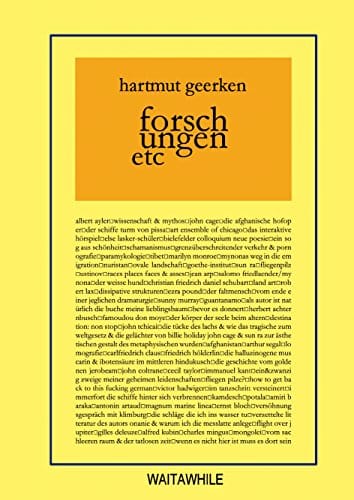
many more have been written in the meantime. in all these texts, like the trumpeter of the art ensemble of chicago, lester bowie, i wear a white lab coat when i write. they deal with archaeology, mycology, literary & linguistic criticism, german studies, music, interdisciplinary cultural studies, philosophy, radio plays, science fiction, mongolian studies, sexuality & many other areas that cannot be subsumed in the areas mentioned here. they are texts that waft around in the intermediate area between science & literature. for me, this is a wonderful opportunity to play with science like an otsog & without blinkers, away from all academic regularities. - in addition, my collected verbal acoustic spoken word pieces, 29 in number, from the period between 1971 & 1992 were published in 2017 by berliner hybriden-verlag in a bibliophile edition with 14 compact discs. so enough flowers to read & listen to.
Looking back, it is fair to say that jazz music in all its facets is one of the greatest achievements in 20th century music. As a contribution of African-Americans, it goes hand in hand with the emancipation movement of blacks in the USA. But apart from the fact that discrimination against blacks and whites in the USA today - unlike 60 years ago - is no longer decreed by the state, little seems to have changed. The black singer Andra Day, who plays Billie Holiday in the current film “The United States vs. Billie Holiday”, has said, “From the outside, we seem to be living in a different era. So you might think we've overcome these problems by now. But our society just looks different today. The issues and the resulting injustices are still the same. And it's even the case that this form of racism has spread even further into all areas and is an integral part of the system.” How do you see it?
i have been close friends with the previously mentioned african american drummer famoudou don moye for almost 35 years. he left the usa many years ago because he no longer saw any prospects for himself there. he has lived in morocco, italy & now france since his emigration. we talk on the phone almost every day. he always confirms to me that nothing has improved in the hypocritical world of the usa as far as discrimination against blacks is concerned. a black president or a vice president of color are no evidence of a fundamental change in the situation. he used to say 'fuck obama'. the current economic situation of the socially disadvantaged & the extremely high number of inmates of color in american prisons speak a completely different language. the old master of the saxophone charles lloyd even says about the current situation in the usa: 'it seems like we're going back to slavery'. – i've never been to the usa myself. never wanted to. jean-paul sartre's polemic 'why i won't travel to the united states', published in 1965 as volume 2 of voltaire's pamphlets, made a deep impression on me back then. nothing has changed in me to this day. my many black musician friends came to me in return. - jazz is the only achievement that the usa has been able to produce in its history. improvisation is the only art form that can develop further. the endeavor to continue composing within the framework of new classical music is already leading to a dead end.
There are probably very few people who are as familiar with the music and work of Sun Ra as you are. Only the University of Chicago has an archive that also looks after Sun Ra's legacy. What can we expect from there?
the sun ra archive of the university of chicago contains the legacy of sun ra's business partner alton abraham, who died in 1999. alton abraham was not an archivist & his legacy is due to chance & rather disorganized. but in every archive there are unique documents, but the quantity of an archive is also important. - my first contact with the music of sun ra was in the late 50s. this musician & philosopher has accompanied me for over 60 years. fascination developed from the first listen, fascination developed into a hunter. i started collecting, hunting & organizing archives very early on. over the course of many years, an archive has developed that is second to none. a small comparison: the chicago sun ra archive lists 54 unpublished concert recordings by sun ra. my archive lists 495! in the chicago archive there is a single box of secondary literature on sun ra. in the sun ra archive geerken there are six bulging empty folders. my correspondence concerning sun ra alone is collected in eight leitz folders, including letters from alton abraham. i assume that i am the only one who has followed sun ra over such a long period of time & that anyone who wants to deal with sun ra cannot get past my archive. - is it a coincidence that today, of all days, when i'm hosting this interview, i've dropped the contract i signed for the transfer of my sun ra archive to the darmstadt jazz institute in the mailbox & in two weeks' time about forty boxes will be shipped there?
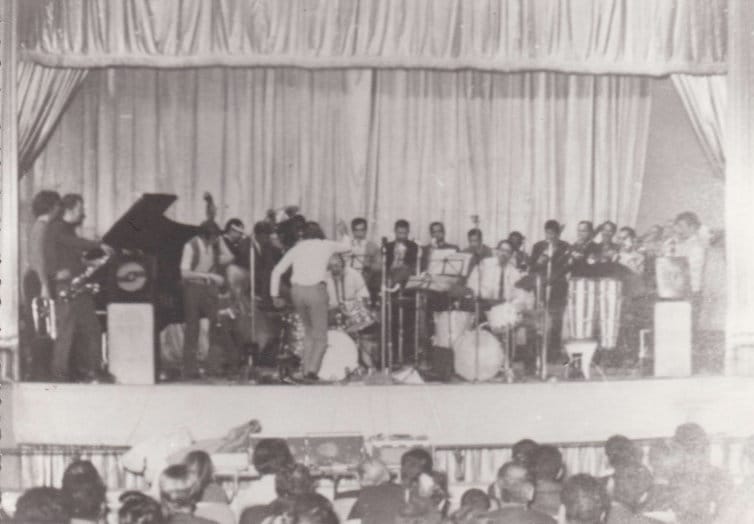
Cairo, Kabul and Athens are the three big cities where you lived for a long time. Where did you like it best? What was special?
cairo (6 years): my first big stay abroad in the largest city in africa. great opportunities in jazz: co-founder of the first egyptian jazz big band, 'the cairo jazz band' & founder of the 'cairo free jazz ensemble'. pure big city. many egyptian friends, also many international ones, few german ones. - kabul (7 years): still in the kingdom of afghanistan! wonderful people. unique landscapes. real continental climate, 2000 meters above sea level. very successful cultural exchange. indo-afghan-european music weeks. many friendships that still last today. never been to a german club. today: a pile of rubble! - athens (4 years): head of the cultural department of the goethe institute. cultural exchange at a high level. particularly interesting: culture in athens in those years mainly took place in the homosexual & communist scene. the biggest film festival in athens with the 'young german film': fassbinder, syberberg, herzog, farocki, hauff, rosa von praunheim, wenders, achternbusch, schilling, grüber, lilienthal etc. each with all their films & some in person! - looking back, i can say that each of these stays was like a complete life, but the years in afghanistan were probably the highlight of my life.
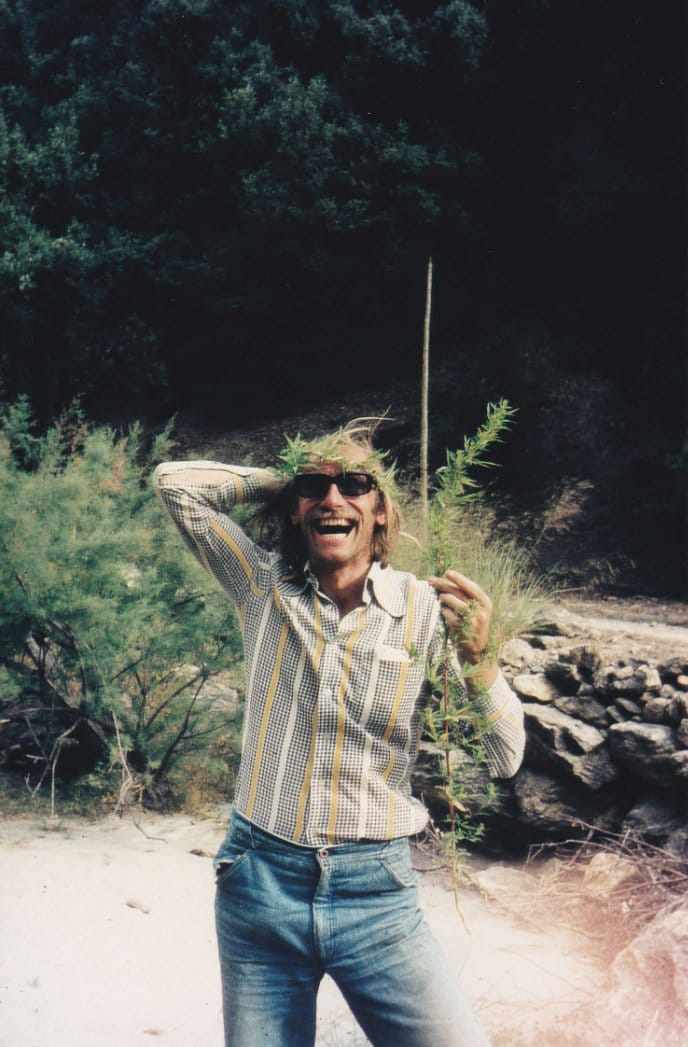
This is where this interview ends. I would like to leave the last question to you. What have you always wanted to be asked?
no one ever asked me about my condition when i was standing on top of the pyramid of giza. an answer could have filled pages!
Dear Hartmut, thank you for this interview.

